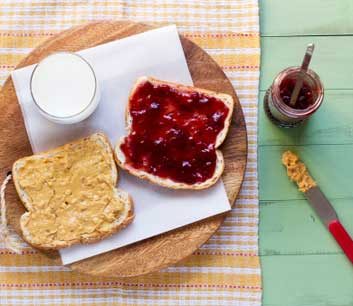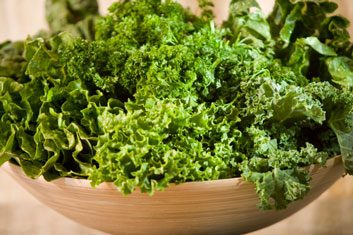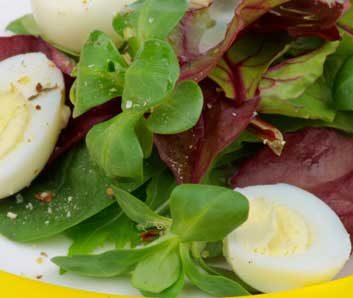
Foods that are healthier together
Beyoncé and jay-z. Katniss and Peeta. Kim and Kanye. Some couples are just better as a team (okay, the last pairing is questionable)-and food can work the same way. When eaten together, some foods become nutritional superstars because they bring out the best in each other. We tend to think of nutrients and antioxidants in isolation, but research shows their impact on our health, such as bolstering brain power and slashing cancer risk, can be even greater when they are teamed up. Get more bang for your nutritional buck with these pairs that add up to more than the sum of their parts.

Kale and walnuts to safeguard eye health
Kale, as well as other dark leafy greens, contains a payload of lutein and zeaxanthin, a dynamic antioxidant duo that protects against cataracts and macular degeneration, both leading causes of blindness. Lutein and zeaxanthin are deposited in the retina, where they reduce sunlight damage. Because both of these antioxidants are fat soluble, you can bolster absorption by consuming green salads with some healthy fats such as nuts, avocados and olive oil.
Sautéed kale with toasted walnuts: In a dry skillet over medium heat, toast 1/3 cup (75 mL) walnut pieces, about 2 minutes. Remove nuts from skillet and heat 1 tablespoon (15 mL) oil. Add 2 chopped garlic cloves and cook 2 minutes. Add 1 bunch roughly chopped kale and cook until wilted and tender, about 5 minutes. Toss kale with a dash of salt, 1 tablespoon balsamic vinegar and the toasted walnuts. Serves 4.

Sweet potato and black pepper to help ward off cancer
Beta-carotene, an antioxidant that is abundant in sweet potatoes, carrots and winter squash, has been shown to help reduce the risk for certain cancers, including breast and uterine. Beta-carotene may fight cancer by limiting oxidative cell damage. And according to a 2009 study published in the Journal of Functional Foods, black pepper improves the intestinal absorption of beta-carotene. (Capsaicin, the fiery phytonutrient found in cayenne, chili powder and ginger, was also found to be effective.)
Sweet-potato hummus: Chop 2 medium, peeled sweet potatoes, and steam or boil until very tender. Add to a food processor with 1/4 cup (60 mL) tahini, 2 tablespoons (30 mL) olive oil, 1 garlic clove, 1 tablespoon (15 mL) brown sugar, 1/4 teaspoon (1 mL) dried ginger, 1/4 teaspoon black pepper, a pinch of cayenne, juice from half a lemon, 1 teaspoon (5 mL) orange zest, and salt to taste. Process until smooth. Spread on whole-grain crackers, or use as a sandwich spread or a dip for crudités. Serves 8.

Beets and eggs to maintain brain power
A 2010 American Journal of Clinical Nutrition study found pairing the nutrients betaine and choline was associated with lower blood levels of homocysteine. “Elevated levels of homocysteine, an amino acid produced in the body, has been linked with decreases in brain health as we age, and is shown to raise heart-disease risk,” says Wendy Bazilian, a registered dietitian and author of The SuperFoodsRx Diet. Choline is abundant in egg yolks as well as beef liver, chicken liver and veal liver; betaine is found in beets, spinach and some grain products.
For a unique and delicious salad: Chop 2 medium-sized beets into 1-inch cubes or slices; toss with 2 teaspoons (10 mL) vegetable oil and 1/4 teaspoon (1 mL) salt. In a baking pan, roast beets at 400°F for 20 minutes, or until tender. Let them cool, then combine with 1 finely chopped head of romaine lettuce, 3 sliced hard-boiled eggs, 1/3 cup (75 mL) pecans and 1/3 cup crumbled feta cheese. For dressing, whisk together 1 tablespoon (15 mL) each olive oil and red wine (or balsamic) vinegar; drizzle over salad. Serves 4.
Related:
• 10 food pairs to supercharge your diet
• 4 healthy superfood pairs
• 3 foods that are healthier together
